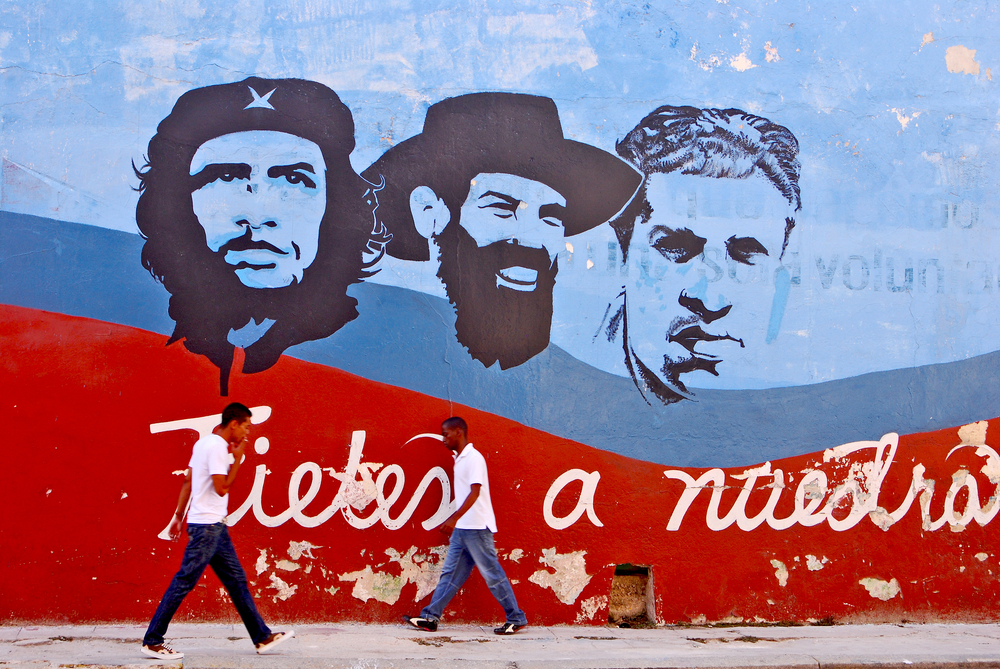
Published February 25, 2017
At first blush, Luis Almagro would seem an unlikely candidate for the disfavor of the current Cuban regime. A man of the political Left, he took office as the tenth secretary general of the Organization of American States in 2015, vowing to use his term of office to reduce inequality throughout the hemisphere. Yet Secretary General Almagro was recently denied a visa to enter Cuba. Why? Because he had been invited to accept an award named in honor of Cuban democracy activist Oswaldo Payá, who died in 2012 in an “automobile accident” that virtually everyone not on the payroll of the Castro regime’s security services regards to this day as an act of state-sanctioned murder. Payá’s “crime” was to organize the Varela Project, a public campaign for basic civil liberties and free elections on the island prison, and he paid for it with his life.
The regime’s refusal of a visa for the head of the OAS caused a brief flurry of comment in those shrinking parts of the commentariat that still pay attention to Cuba, now that Cuban relations with the United States have been more or less “normalized.” But there was another facet of this nasty little episode that deserves further attention: While Almagro’s entry into Cuba was being blocked, a U.S. congressional delegation was on the island and, insofar as is known, did nothing to protest the Cuban government’s punitive action against the secretary general of the OAS.
According to a release from the office of Representative Jim McGovern (D., Mass.), the CoDel, which also included Senators Patrick Leahy (D., Vt.), Thad Cochran (R., Miss.), Michael Bennet (D., Colo.), and Tom Udall (D.,N.M.), and Representative Seth Moulton (D.,Mass.), intended to “continue the progress begun by President Obama to bring U.S.–Cuba relations into the 21st Century and explore new opportunities to promote U.S. economic development with Cuba,” including “economic opportunities for American companies in the agriculture and health sectors.” I’ve no idea whether those economic goals were advanced by this junket. What was certainly not advanced by the CoDel’s public silence on the Almagro Affair while they were in the country was the cause of a free Cuba.
There were and continue to be legitimate arguments on both sides of the question of whether the U.S. trade embargo with Cuba should be lifted. And those pushing for a full recission of the embargo are not simply conscience-lite men and women with dollar signs in their eyes. They include pro-democracy people who sincerely believe that flooding the zone in Cuba with American products, American technology, and American culture will so undermine the Castro regime that a process of self-liberation will necessarily follow. That this seems not to have been the case with China is a powerful counterargument. Meanwhile, my own decidedly minority view — that the embargo should have been gradually rolled back over the past decade and a half in exchange for specific, concrete, and irreversible improvements in human rights and the rule of law, leading to real political pluralization in Cuba — seems to have fallen completely through the floorboards of the debate.
But as pressures to “normalize” U.S.–Cuba relations across the board increase, there ought to be broad, bipartisan agreement that Cuban repression, which has in fact intensified since the Obama initiative two years ago, should have its costs. If, as Congressman McGovern averred, he and others want to move Cuba–America relations into the 21st century, then let him and others who share that goal agree that Cuba should be treated like any other country: meaning that when it does bad things, it gets hammered by criticism and pressures are brought to bear to induce or compel better behavior in the future.
“Opening up” without pressure has never worked with Communist regimes. It didn’t work when the Vatican tried it in east-central Europe in the 1970s; the Ostpolitik of Pope Paul VI made matters worse for the Catholic Church in Czechoslovakia and Hungary. It didn’t work vis-à-vis the Soviet Union in the years of détente, which coincided with some of the worst Soviet assaults on human-rights activists. It hasn’t worked with China, where, as in Cuba, repression has increased in recent years.
To will the end — a 21st-century Cuba where the government behaves in a civilized fashion and economic opportunity is available to all Cubans, not just those favored by the regime — necessarily involves, at least for morally and politically serious people, willing the means: which must include holding the current Cuban regime to account when “opening up” does not extend to basic civil liberties for the Cuban people, and when “opening up” does not include a decent respect for the hemispheric proprieties, such that the head of the OAS is summarily refused entry into Cuba.
That the Almagro Affair had to do with an award named for Oswaldo Payá, a true martyr in the cause of freedom who was inspired by Christian Democratic convictions, suggests that the Castro regime and those who wish to inherit its power are nervous. Authoritarians confident of their position would not have reacted so stupidly to an award being given to a left-leaning, Spanish-speaking, Latin American politician — unless, that is, they were afraid that the memory of Oswaldo Payá would be rekindled in the ceremony in which Almagro received the Payá Award. All the more reason, then, for congressional delegations and others to end the Neville Chamberlain routine, stop appeasing the Castro regime, and start taking steps to ensure that what Congressman McGovern called “the progress begun by President Obama” is, in fact, progress in Cuba — and not just economic progress, but progress in human rights and the rule of law.
— George Weigel is Distinguished Senior Fellow of Washington’s Ethics and Public Policy Center, where he holds the William E. Simon Chair in Catholic Studies.











